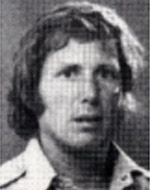The eldest son of Shoshana (who was murdered by terrorists who infiltrated Kibbutz Shamir) and Yosef was born on October 12, 1943. At Kibbutz Shamir, Amir bought his education at the Kibbutz Einot educational institution, He was a nice boy and a welcoming boy, and since his youth, Amir has been especially fond of music, his first instrument was flute, then he played mandolin, violin and accordion, but the love of his life was the guitar that accompanied him throughout his life “An officer with a guitar” called him commanders and commanders, a special feeling Amir showed towards animals, and as a young man joined the kibbutz cattle industry and continued to work there while he was on the kibbutz. The finished high school agricultural trend. Amir was drafted into the IDF in early November 1961 and asked to volunteer to Explore “Golani”. During his regular service, he completed a course for scouts, a course for squadron commanders – upon graduation, he was awarded the rank of corporal, officers ‘course, and officers’ course. During the service he was wounded in a combat injury. Amir participated with his brigade in the Battle of Noquib, where his friend Micha was killed. After three years of regular service, Amir was discharged from the IDF and returned to the kibbutz, where he continued to work in the cattle industry, where he married Rachel, whom she knew when she served in the Nahal Kerem Shalom settlement. Over the years, the couple had two sons and a daughter. Amir found his livelihood at Assia Laboratories. Although he had no formal education from an agricultural college graduate, he was preferred to graduates of this faculty and was appointed as the person responsible for the company’s marketing staff in the north of the country. Amir has learned all the secrets of poultry farming from all aspects: economic, economic and veterinary. After a while, he successfully fulfilled the role of professional guide and marketing man in the cattle industry. Amir wanted to buy a home for his extended family and seven wanderings. For this purpose, he left his job and went to work in Africa, but the concern for the family that remained in Israel brought him back to Israel. Amir returned to work in Asia-Labs and was accepted with open arms. In the Six Day War Amir participated with the Golani Brigade as a sabotage officer, as well as in the War of Attrition and the Yom Kippur War. The opinion of his commanders reads: “Effective, dedicated, with leadership.” “A well-executed field man, an officer who can be trusted;” “A soldier and an excellent officer, a sabotage officer who knows the job well and performs it well.” Lt. Col. (res.) Simcha Yosef, commander of Amir’s battalion for eight years, notes that during the War of Attrition on the Golan Heights, Amir’s soldiers managed to neutralize nine mines planted by infiltrating terrorists from Jordan and Syria, and that during the entire reserve service, When the Peace for Galilee War broke out, his company was recruited for active service, and Amir was asked to replace the regular company commander who left for the United States, United States. Amir stood at the head of the company and went to war with her. He told his soldiers: “The main goal of this reserve service is that everyone should return home safely.” On the 11th of Av 5743 (11.7.1983), Captain Amir was killed while performing his duty in the Peace for Galilee war, when his safari vehicle was hit by a roadside bomb, and he was about forty years old. The cemetery in Kiryat Tivon left behind a wife, two sons, a daughter, a father, and two sisters, and was promoted to the rank of Major, and the brigade commander Col. Yitzhak wrote to the bereaved family: “I spent a brief period with Amir, I saw an officer and a commander with a sense of responsibility for the missions before him … I saw a commander looking after his soldiers at every moment … I saw soldiers crying over a”Oh my country, my homeland, what is in you and what you want to spend, and not wars, and every family is small and big, we want peace as a gift,” he said in a poem written by his daughter Ayelet. “And so she wrote in a poem she dedicated to her father after his death:” I have one bird in my Lev and it shows me my feelings / When sadness or crying – it pinches and pecks at me / And when joy – it jumps and cheerful / bird like this I have not seen / She gave me the happiness / She gave the joy / Until the terrible moment that it happened / She ran away from me without saying goodbye / Just winged and flew there. “His family and Kibbutz Shamir did not See brochure memory and a memory book, which grouped the words of friends and testimony about the attack, fell to Amir. Also written articles in newspapers memory “on guard”, “wife” and Maariv “
